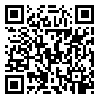Sun, Aug 31, 2025
[Archive]
1- Medical Education Research Center, Education Development Center, Guilan University of Medical Sciences, Rasht, Iran
2- School of Dentistry, Guilan University of Medical Sciences, Rasht, Iran
3- Department of Orthodontics, Dental Sciences Research Center, School of Dentistry, Guilan University of Medical Sciences, Rasht, Iran ,yasi.10482@gmail.com
2- School of Dentistry, Guilan University of Medical Sciences, Rasht, Iran
3- Department of Orthodontics, Dental Sciences Research Center, School of Dentistry, Guilan University of Medical Sciences, Rasht, Iran ,
Abstract: (266 Views)
Background & Objective: Understanding the factors that influence academic motivation is crucial for identifying challenges and tailoring educational interventions to enhance students' learning experiences and outcomes. Thus, this study aimed to assess the academic motivation of dental students and the factors associated with it.
Materials & Methods: This cross-sectional study evaluated 200 dental students from January 7, 2022, to October 31, 2022. The Academic Motivation Scale (AMS), which comprises three domains of intrinsic and extrinsic motivation, was used for data collection. Data were analyzed using ANOVA, the Kruskal-Wallis test, and the t-test.
Results: Of 200 participants, 117 (58.5%) were males, and 160 (80%) were single. The mean age was 24.33 ± 1.66 years. Academic motivation was significantly associated with age, gender, marital status, parental level of education, family financial status, academic level, having a dentist in the family, and university branch (p < 0.001). Females acquired a significantly higher mean score in all three domains than males (p < 0.05). The mean scores of extrinsic motivation and amotivation were significantly higher in singles, students whose parents had a high school diploma (compared with those with a higher educational level), students who did not have a dentist in their family, and students attending the Rasht branch (p < 0.05). Place of residence had a significant association with the amotivation score (p < 0.001), and family financial status had significant associations with both extrinsic motivation (p < 0.001) and amotivation (p < 0.001) scores.
Conclusion: The academic motivation score of the study population was perfect. Age, gender, marital status, parental level of education, family financial status, educational level, having a dentist in the family, and university branch were found to have a significant impact on the academic motivation of dental students.
Materials & Methods: This cross-sectional study evaluated 200 dental students from January 7, 2022, to October 31, 2022. The Academic Motivation Scale (AMS), which comprises three domains of intrinsic and extrinsic motivation, was used for data collection. Data were analyzed using ANOVA, the Kruskal-Wallis test, and the t-test.
Results: Of 200 participants, 117 (58.5%) were males, and 160 (80%) were single. The mean age was 24.33 ± 1.66 years. Academic motivation was significantly associated with age, gender, marital status, parental level of education, family financial status, academic level, having a dentist in the family, and university branch (p < 0.001). Females acquired a significantly higher mean score in all three domains than males (p < 0.05). The mean scores of extrinsic motivation and amotivation were significantly higher in singles, students whose parents had a high school diploma (compared with those with a higher educational level), students who did not have a dentist in their family, and students attending the Rasht branch (p < 0.05). Place of residence had a significant association with the amotivation score (p < 0.001), and family financial status had significant associations with both extrinsic motivation (p < 0.001) and amotivation (p < 0.001) scores.
Conclusion: The academic motivation score of the study population was perfect. Age, gender, marital status, parental level of education, family financial status, educational level, having a dentist in the family, and university branch were found to have a significant impact on the academic motivation of dental students.
Article Type : Orginal Research |
Subject:
Medical Education
Received: 2025/03/23 | Accepted: 2025/07/13
Received: 2025/03/23 | Accepted: 2025/07/13
Send email to the article author
| Rights and permissions | |
 |
This work is licensed under a Creative Commons Attribution-NonCommercial 4.0 International License. |





